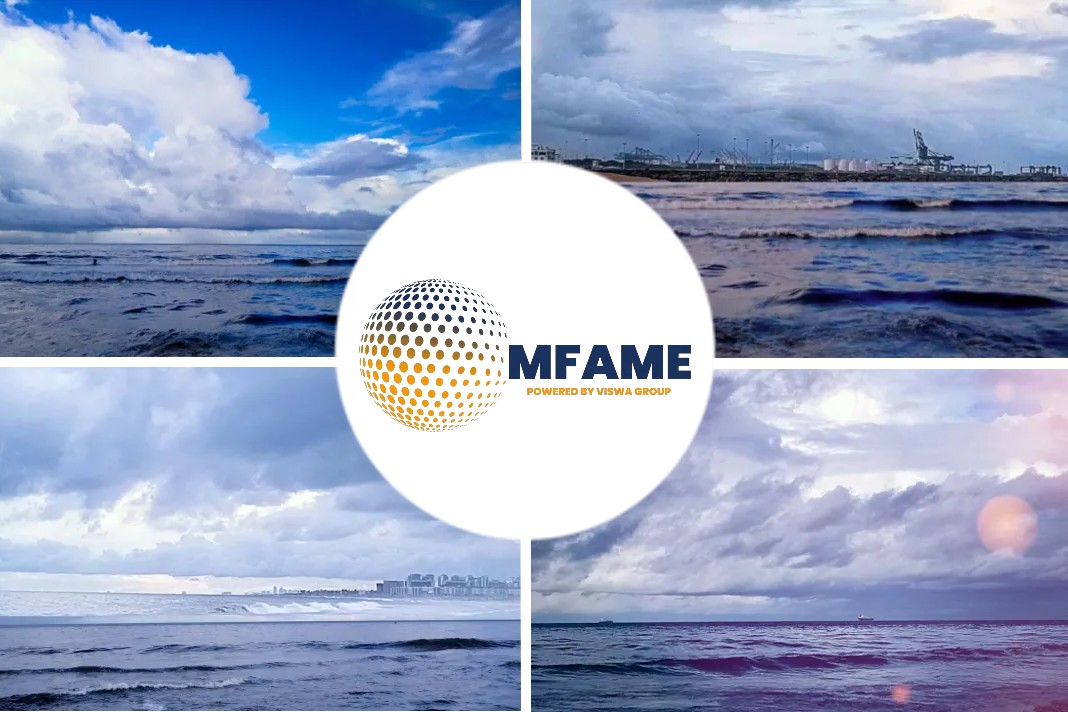A recent news article published in the New Yorker states that if there is supply chain problems try a cargo schooner.
The crew of Grain de Sail
It’s been a rough few years for the supply chain. Last spring, as the world watched, a huge container ship loaded with bicycles, dildos, and IKEA furniture blocked the Suez Canal for six days. In February, a cargo vessel carrying four hundred million dollars’ worth of Audis, Porsches, Bentleys, Lamborghinis, and Volkswagens caught fire and sank in the North Atlantic. Ports are crowded, consumers are cranky, and the glaciers are still melting. But maybe the tides are turning. Not too long ago, Olivier and Jacques Barreau, twin brothers from France, who had no experience with export or with wine, founded a company that ships biodynamic wines across the Atlantic. Their aim: ninety-nine-per-cent-carbon-neutral shipping. (The global shipping industry creates almost as much CO2 as the entire continent of South America does.) Their method: the world’s first modern cargo sailboat.
“We’re trying to implement this new wording, so people understand that it’s a cargo ship and a sailboat,” Matthieu Riou, who is the company’s export director, said the other day, stepping aboard Grain de Sail, a two-masted aluminum-hulled schooner. He wore a backward baseball cap, dirty white sneakers, and a T-shirt with an illustration of a woman drinking wine and smoking a cigarette. “The goal is to bring some new stuff to the U.S., wines that have never been distributed in New York City. New types of grapes, new types of techniques.”
After twenty-four days at sea, the cargo sailboat, which is registered as an official merchant vessel by the French government, had arrived in New York Harbor, with eight thousand bottles: Château Maris grenache, Ferme de la Sansonniere Chenin Blanc, Charles Heidsieck champagne. A sailor named François Le Naoures said, “This is the first time since Prohibition that we import so much alcohol by sail.”
Riou, who is twenty-eight, said, “It’s a dry boat, so there’s no alcohol consumption on board. Only when we’re docked are the sailors free to drink.”
“It’s been fun!” Le Naoures, who wore polarized sunglasses, Botalo sailing boots, and a beaded bracelet made by his two-year-old daughter, said. “We went to a jazz concert and to many, many bars. Probably all the bars on Atlantic Avenue.”
“Fifteen days in port is good,” the ship’s captain, Goulwen Josse, said. He was unshaven, like Le Naoures, with dirty clothes, greasy hair, and bright-blue eyes. “But the sea is a quiet place.” The horn of the Staten Island Ferry blared in the distance. Josse, who is forty-eight, continued, “Living on earth is not for me. I don’t like the way it works.” He laughed.
“At sea, what happens on earth doesn’t have any importance. You just have to take care of your boat and the people on board.” He went on, “If I stayed on earth, I would have to do political things.” Instead, he said, he has decided to ship cargo with the wind: “I feel like I’m doing something intelligent.”
Josse’s crew set sail
Around noon, Josse’s crew set sail. Destination: Boca Chica, in the Dominican Republic. Cargo: twenty pallets of syringes, surgical tubing, bedpans, wheelchairs, and wound-irrigation kits. (Grain de Sail partnered with the Afya Foundation, in Yonkers, to ship medical supplies to Boca Chica, where the crew will pick up thirty-seven tons of cocoa and head back to France.) The sailors made a quick toast (Maestral White, Domaine des Maravilhas, 2019)—“To Grain de Sail! To New York City!”—before Julia Guerin, who wore waterproof sailing pants and carried a wood-handled knife in a leather holster, climbed onto the ship’s boom and unfurled the mainsail. The sail rose up the mast like a squirrel climbing a flagpole. Then the ship started to whine. Josse shouted, “There’s something wrong!”
The electric motor, which usually lifts the mainsail into place, had malfunctioned. “We’ll have to dismantle it at sea,” Josse said, instructing Guerin and Le Naoures to hoist the sail by hand, using rope. Le Naoures was out of breath in minutes.
Josse shouted, “Continuez! Continuez!”(“Keep going! Keep going!”)
Le Naoures shouted, “Putain! Putain! ” (“Fuck! Fuck!”)
Once the sails were in place, the boat glided past the Statue of Liberty, and Josse took his hands off the wheel to roll a cigarette. “The autopilot is really useful,” he said. Nearby, a tugboat pushed a barge, piled with garbage, toward New Jersey, and a few deckhands aboard an oil tanker waved from across the harbor. Le Naoures FaceTimed his daughter, pointing the camera at the oil ship. His daughter said, “C’est un gros bateau!”
Cargo sailboat drifted alongside the Mathilde Schulte
After passing under the Verrazzano-Narrows Bridge, the cargo sailboat drifted alongside the Mathilde Schulte, an old-fashioned diesel-engine cargo ship. “Most of the things in those containers aren’t useful,” Josse said. “Most could be produced here in America!” The Mathilde Schulte was loaded with almost nine hundred shipping containers (cargo: perfume, heavy machinery, cheese) bound for Brooklyn’s Red Hook Terminal. Josse lit another cigarette and sailed into the afternoon sun.
Did you subscribe to our daily Newsletter?
It’s Free! Click here to Subscribe
Source: Newyorker
















![[Watch] A Christmas Tree Goes To Sea](https://mfame.guru/wp-content/uploads/2025/01/mfame-container-100x70.jpg)
